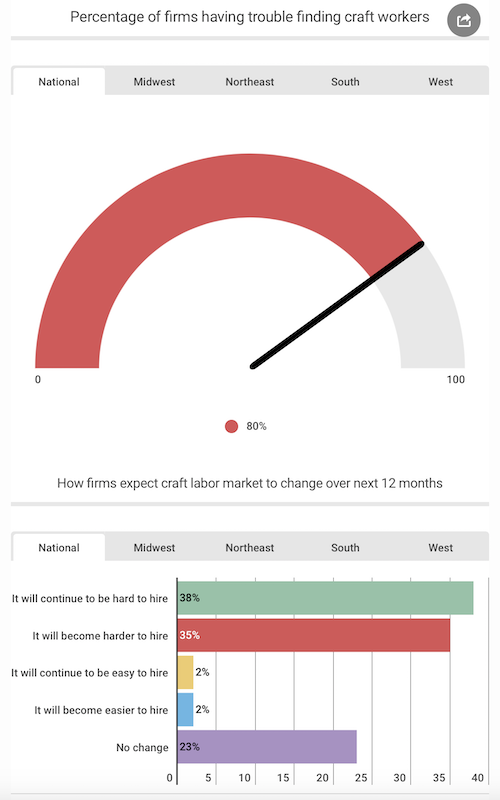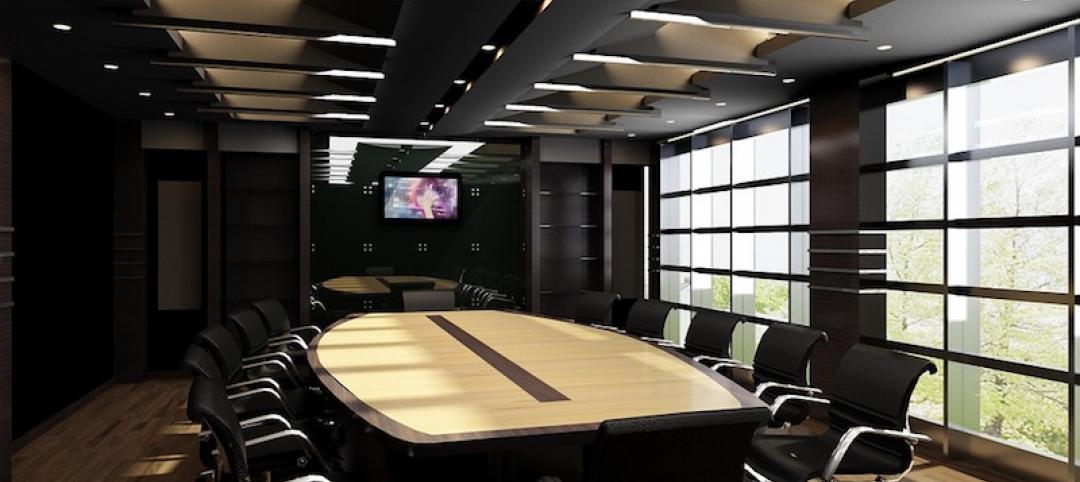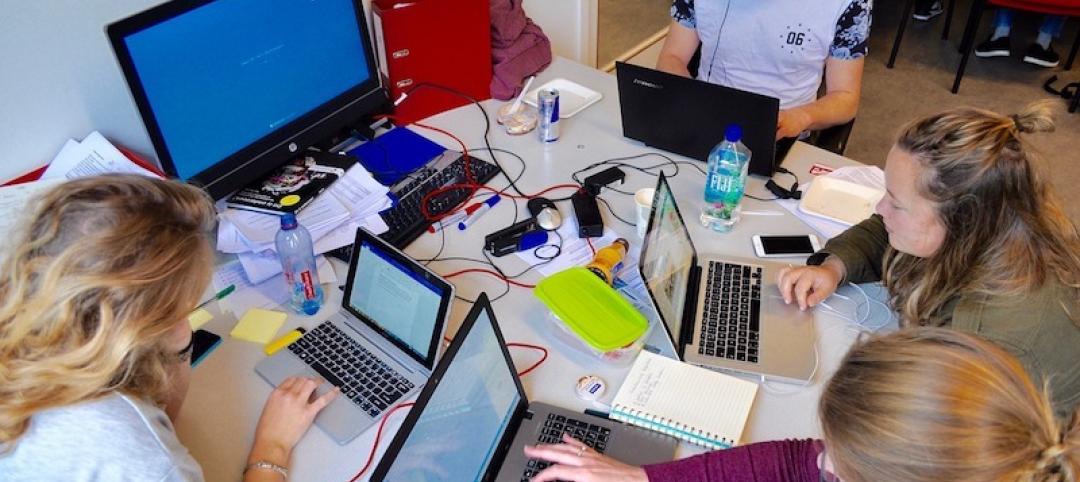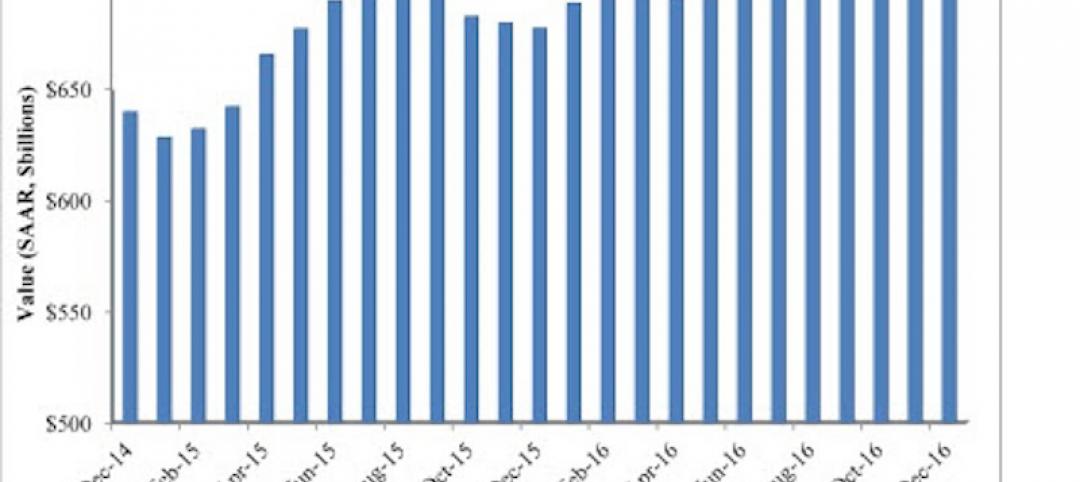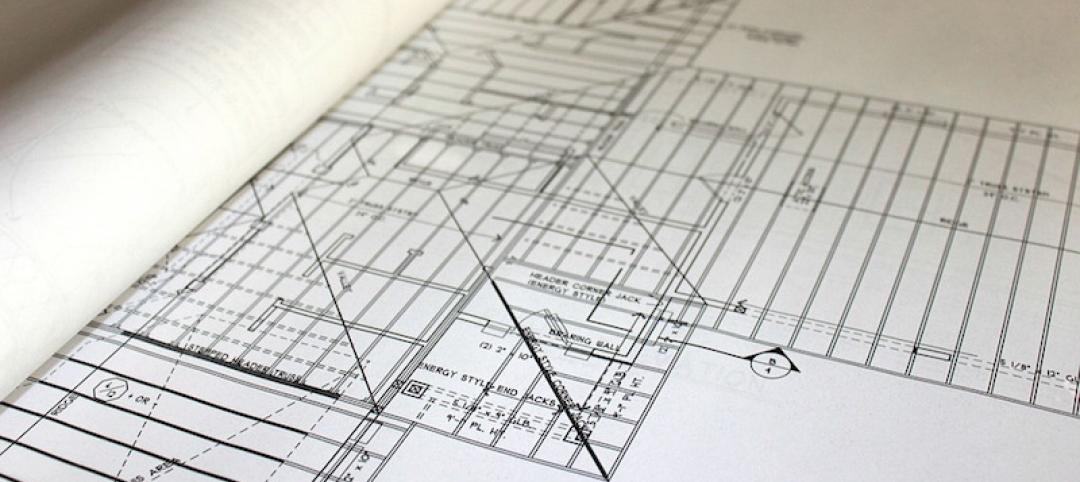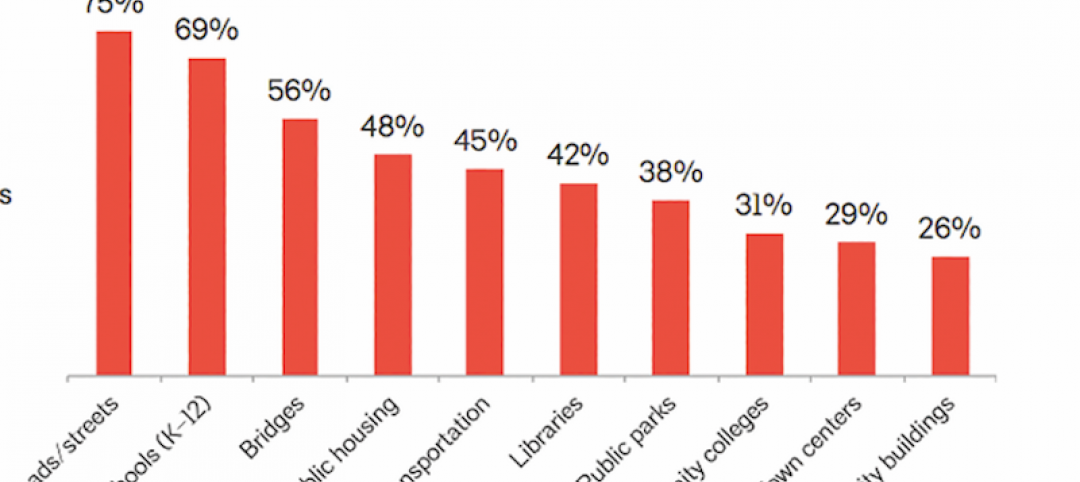You’d have to be living on the moon not to know that hourly construction workers are getting scarcer. But the magnitude of this labor shortage is writ large in a recent survey, released this week by Autodesk and the Associated General Contractors of America (AGC), which found that 80% of 1,935 respondents in 23 states report having a hard time filling hourly craft positions.
More concerning are the findings that nearly three-quarters of the construction firms polled don’t expect shortages to abate over the next year, and could, in fact, get worse. And the training and skill level of the labor that is available are deemed “poor” by 45% of those polled.
It remains to be seen whether and how soon the industry can dig itself out of this hole. To attract workers, two-thirds of the survey’s respondents say they’ve boosted base pay rates, and 29% are offering incentives and bonuses. A longer-term play finds nearly half of the firms polled—46%—having launched or expanded their training programs. Half of the respondents also say their companies are involved in career-building programs.
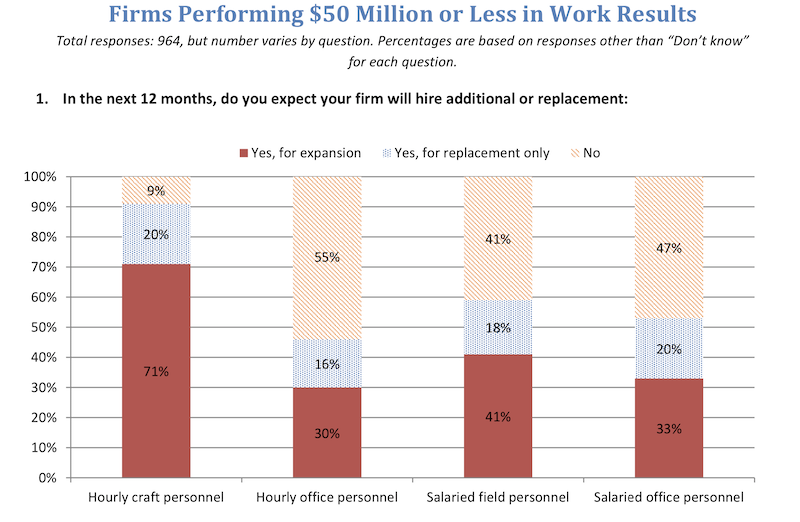
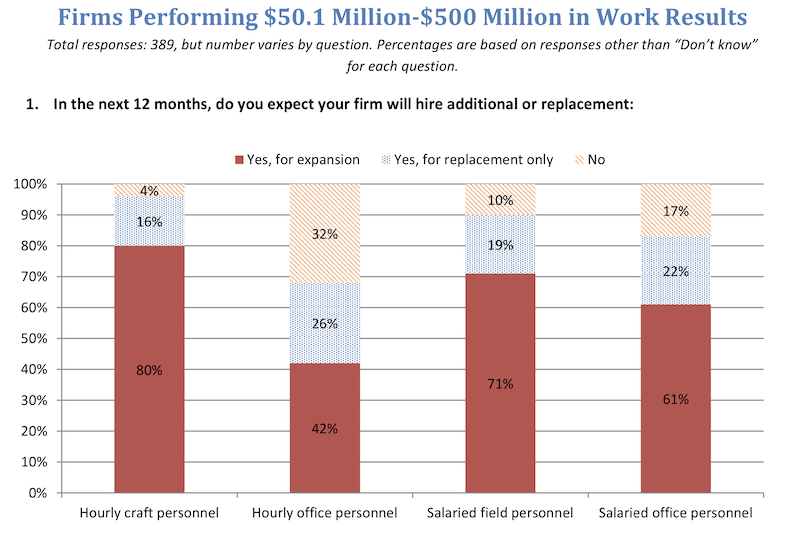
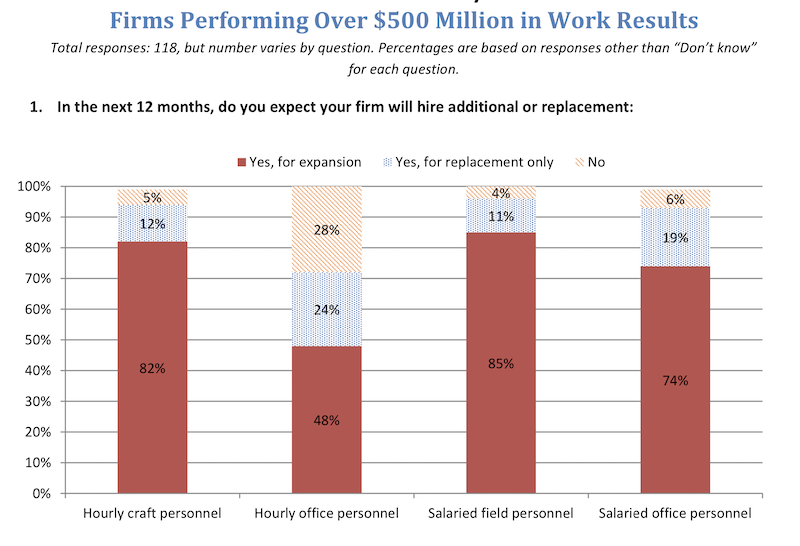
Labor shortage problems are hitting construction firms of all sizes, and are having a deleterious effect on companies' abilities to expand their businesses. Image: AGC-Autodesk
The labor shortage is shoving a perennially tech-phobic construction industry into the 21st Century. One-quarter of respondents are using tools like drones, 3D printers, and robots. Another 23% are relying on lean construction techniques, BIM, and prefabrication.
The disruption being caused by labor shortages is also manifesting itself in costlier projects that take longer to complete. Forty-four percent of the firms polled are increasing their construction prices, and 29% are factoring longer lead times into their bids.
“Workforce shortages remain one of the most significant threats to the construction industry,” said Stephen E. Sandherr, AGC’s chief executive officer. “However, construction labor shortages are a challenge that can be fixed, and this association will continue to do everything in its power to make sure that happens.”
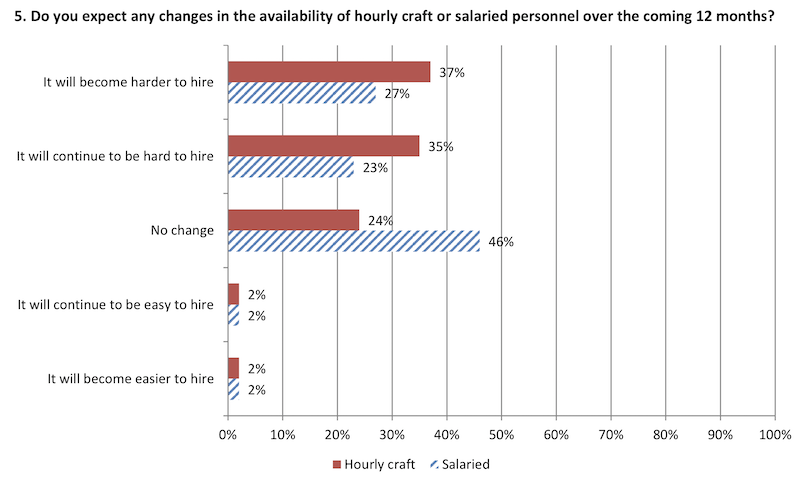
This chart, based on 964 responses from firms with $50 million or less in work results, shows how contractors are struggling to find salaried, as well as hourly, workers. Image: AGC-Autodesk
Over the past two years, AGC has secured $145 million in federal funding for career and technical education programs. It is urging the federal government to increase that funding, and to allow construction students to qualify for federal Pell Grants, which would make it easier for firms to establish apprenticeship programs.
More quixotic—given the Trump Administration’s virulent anti-immigration stance—is AGC’s call for the government to let more immigrants into the U.S. to work construction.
Related Stories
Office Buildings | Mar 7, 2017
Large creative office projects generate staggering returns for property investors
A new Transwestern report examines the adaptive reuse trend across the U.S.
Industry Research | Mar 7, 2017
These are the 10 most expensive cities in the world to build in
Paris, Frankfurt, and Macau are all on the list, but none of them are more expensive than the city in the number one spot.
Office Buildings | Mar 2, 2017
White paper from Perkins Eastman and Three H examines how design can inform employee productivity and wellbeing
This paper is the first in a planned three-part series of studies on the evolution of diverse office environments and how the contemporary activity-based workplace (ABW) can be uniquely tailored to support a range of employee personalities, tasks and work modes.
Industry Research | Feb 15, 2017
Putting workers first should be every employer’s priority
The latest Sodexo report on workplace trends explores 10 factors that are impacting the global work environment.
Industry Research | Feb 13, 2017
How thought leadership marketing can generate referrals for your firm
The most effective way to boost your reputation is through thought leadership marketing.
Market Data | Feb 1, 2017
Nonresidential spending falters slightly to end 2016
Nonresidential spending decreased from $713.1 billion in November to $708.2 billion in December.
High-rise Construction | Jan 23, 2017
Growth spurt: A record-breaking 128 buildings of 200 meters or taller were completed in 2016
This marks the third consecutive record-breaking year for building completions over 200 meters.
Market Data | Jan 18, 2017
Fraud and risk incidents on the rise for construction, engineering, and infrastructure businesses
Seven of the 10 executives in the sector surveyed in the report said their company fell victim to fraud in the past year.
Market Data | Jan 18, 2017
Architecture Billings Index ends year on positive note
Architecture firms close 2016 with the strongest performance of the year.
Industry Research | Jan 12, 2017
Are public buildings considered infrastructure?
A survey, conducted in October by The Harris Poll on behalf of AIA, asked 2,108 U.S. adults if they considered public buildings part of their community’s infrastructure.


